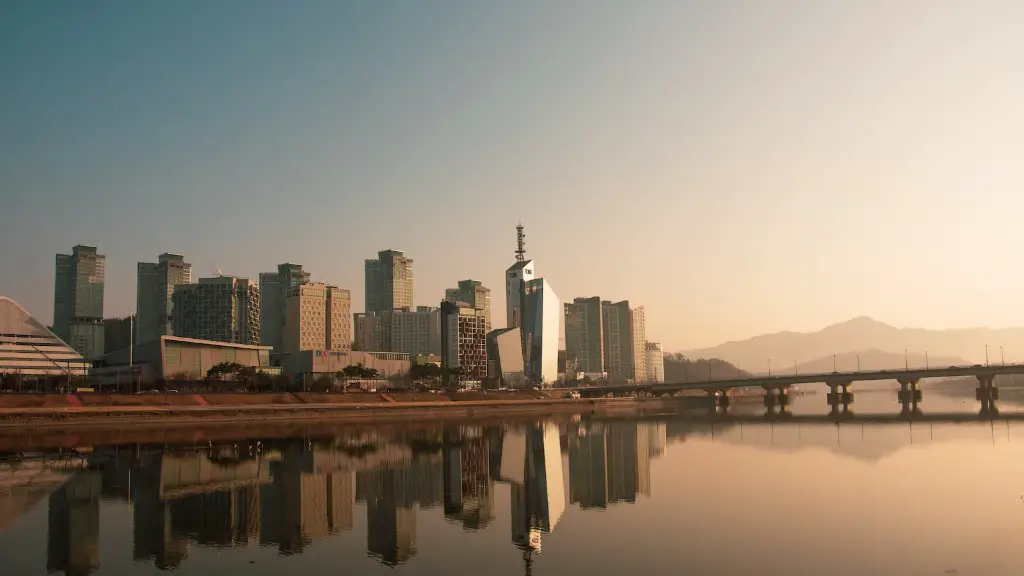Political Reasonings
The political reasons behind why North Korea should denuclearize are clear. The international community is becoming increasingly worried about the implications of a nuclear-armed North Korea. This would lead to the militarization of the Korean Peninsula and create a more dangerous global security situation. North Korea’s possession of nuclear weapons was a key factor in the decision to initiate United Nations sanctions, as well as U.S. bilateral sanctions. North Korea is also under international pressure from allies to denuclearize. This pressure could potentially lead North Korea to put its nuclear weapons programs on the negotiating table.
Moreover, North Korea can potentially gain from denuclearizing. It could use the process to improve relations with the United States and gain access to international aid and investment. On the flip side, for North Korea to continue with its nuclear weapons program would only further entrench its status as a pariah state and could lead to further sanctions. This could hinder the country’s economic development, hamper its diplomatic objectives and make it even more isolated.
Economic Considerations
The economic considerations of denuclearizing are also compelling. North Korea has significant economic problems, and to alleviate some of these, denuclearization is necessary. It could lead to increased investment, aid and access to markets and resources. North Korea could potentially benefit from the economic development, infrastructure and other projects associated with denuclearizing. Moreover, North Korea could potentially use the process to reestablish diplomatic relations and create more economic ties. Additionally, North Korea could use the process to gain access to technology and resources needed for economic development.
Humanitarian Perspective
The humanitarian reasons for denuclearizing North Korea are also significant. North Korea’s nuclear program has severe repercussions for the people of North Korea. It has resulted in thousands of civilian casualties, political repression and the displacement of thousands of people. A denuclearized North Korea could put an end to these practices and allow the North Korean people to live free from fear and oppression. Moreover, it could open up the country to more international aid and resources to help alleviate suffering.
Philanthropic Considerations
From a philanthropic perspective, denuclearizing North Korea could be beneficial. It could lead to improved relations between North and South Korea, which could lead to greater cooperation in other areas. This could potentially result in the exchange of technology, investments, services and other resources to benefit both countries. Additionally, denuclearizing North Korea could help reduce poverty in the region, create economic opportunities and possibly even lead to the reunification of the Korean peninsula.
International Obligations
From an international perspective, North Korea has a duty to denuclearize. This duty is based on a number of international obligations which North Korea has ill-obeyed for decades. United Nations Security Council Resolution 1540 calls on North Korea to dismantle its nuclear weapons program in a manner consistent with international law. Additionally, North Korea has also entered into a number of international treaties and agreements which address the disarmament of nuclear weapons. This includes the Nuclear Non-Proliferation Treaty and the Comprehensive Nuclear Test Ban Treaty. Moreover, North Korea is a party to a number of regional agreements which call for the denuclearization of the Korean Peninsula.
Conclusion of Military Concerns
The military reasons for North Korea to denuclearize are obvious. A denuclearized North Korea would create more stability on the Korean peninsula, reduce the risk of military conflict, and improve regional and international security. Moreover, it would reduce the risk of North Korea transferring nuclear technology or materials to rogue states or non-state actors. Additionally, a denuclearized North Korea would also remove the possibility of North Korea conducting nuclear tests, which could destabilize the region and lead to further sanctions.
Security Factors
Finally, a denuclearized North Korea could potentially improve security in the region. This would reduce the threat of a nuclear confrontation or nuclear weapons falling into the wrong hands. A denuclearized North Korea would also reduce the risk of accidents or miscalculations related to nuclear weapons. This could lead to a more stable security climate in the region and help to ensure peace and stability in the region.
Environmental Concerns
The environmental considerations of denuclearizing North Korea are also significant. North Korea’s nuclear weapons program has produced a significant amount of nuclear waste which could potentially pose a threat to the environment. A denuclearized North Korea could potentially reduce this threat and lead to more sustainable practices and policies. Furthermore, North Korea could potentially use the process of denuclearizing to gain access to environmental technology and resources needed to protect the environment.
Domestic Influence
North Korea’s denuclearization could also have positive domestic effects. It could allow North Korea to improve relations with its South Korean neighbor and create more opportunities for cooperation. This could help to bring about greater stability and prosperity in the region. Additionally, it could lead to greater freedom for North Korean citizens and potentially improve living conditions in the country.
Conclusion
In conclusion, denuclearizing North Korea has numerous benefits, both domestically and internationally. It could lead to the improved security situation in the region, economic and humanitarian gains and improved relations with the international community. Additionally, denuclearizing North Korea could also ultimately lead to greater freedom and prosperity for North Korean citizens. Therefore, denuclearizing North Korea is an important step which needs to be taken in order to ensure stability, peace and prosperity in the region.


